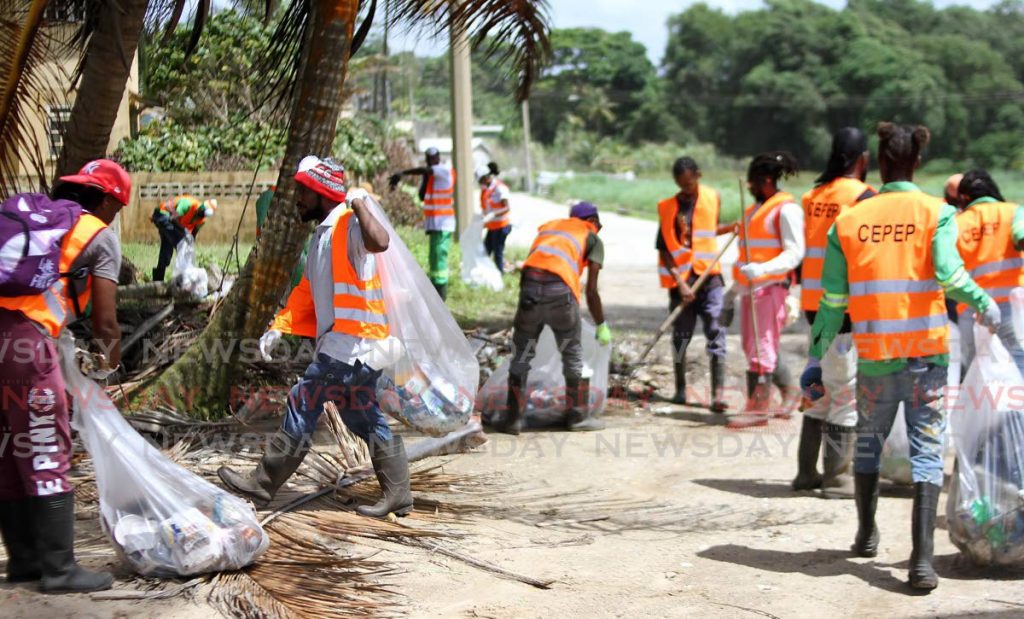We the people want a say on how Trinidad and Tobago runs

Rishi Maharaj
“If you don't know where you're going, any road will get you there.”
This is one of the first quotes you learn when trying to understand monitoring and evaluation, and given the current times we are in it seems applicable.
As we face the current economic climate and seek to pivot the economy away from a dependency on oil and gas, we also need to adjust our focus away from saying what was done to demonstrating the impact the proposed projects, changes etc, has had on the lives of citizens. Over the last week, I took some time to review the budget speeches given during the period 2006 to present to see if there has been a common trend through administrations in the issues highlighted and proposals to improve them.
From looking at each of these statements I have noted the following:
1. We suck at revenue collection. In everyone there is talk of leakages and the creation of a revenue authority under the PNM and the UNC/COP having consultants do a “a comprehensive review of our tax system. This review will cover the entire tax system, including tax policy, administration, and enforcement.”
2. Apparently the major areas for diversification are agriculture; marine/yachting, manufacturing, tourism, downstream energy industries, outsourcing financial services; creative industries; fashion and food. Countless incentives and tax breaks have been offered but yet we are still reliant on oil and gas.
3. We have spent billions every budget on education, national security, health, housing, public utilities etc, yet crime is high, cost of healthcare is high, people still need houses, not everywhere gets a reliable water or electrical supply.
4. Local government and public sector reform seems to be unachievable.
5. CEPEP and URP need to be more productive and assist in manufacturing and agriculture and slowly move away from government assistance.
6. Poverty reduction is always on the card.
7. We love to tax things to make more money or punish bad habits (casinos) or offer tax incentives to assist business or reduce tax or offer tax relief to create more disposable income to increase savings.
8. Recycling and waste management is important to save the environment (every time it rains we see how well that has worked).
I highlight these things to make the point that words on a piece of paper read and debated every September/October means nothing if not backed up with real action and we as a people need to start holding our politicians and government officials to account and really ask for results.
While the numbers are good, we need to move beyond and the “so, what” question becomes critical. So, what if you fixed and built 500km of roads; so what if we now have two hospitals; so, what if we trained 10,000 people in different skills; so, what if we spent more money or less money this year than last year. What difference does that make if people have to wait two days to get a hospital bed, take two hours to reach to work, or can’t get a job with the skills they have.
For me therefore the most important document laid in this years budget statement has to be the National Performance Framework (NFP) 2017-2020. Now I would admit my bias here because I am trained in monitoring and evaluation (though my wife is more the practitioner than I am) and I did work a bit on the committee for the creation of a national monitoring and evaluation policy.
This NPF is deliberately designed to measure government's implementation progress and government’s performance in the context of their recently completed Vision 2030 national development strategy and is a document we need to study and use to inform our questions to ministers.
The media, civil society and we the general public need to be less concerned on activities and outputs and more concerned with outcomes and impacts. There needs to be a concerted effort to change the focus of discussion and by re-positioning our questions we would force the government (regardless of who is in power) to have to provide reasons, data and evidence to back up what they are saying.
We live in a challenging time, but I also believe that it is the opportune time for us to also change old habits and re-focus our country to compete in the global environment of the 21st century. A government must be of the people, for the people and by the people. The key word is people, and it is time that we the people demonstrate that there need to be a two-way discussion in order turn this country around, and no government, political party is bigger or has more power than we a people united and willing to question and seek answers for whatever decisions you make on our behalf.
Rishi Maharaj is the executive director of the Equigov Institute, which provides consultancy, training and research in data privacy/protection, governance, information access, transparency, and monitoring and evaluation.


Comments
"We the people want a say on how Trinidad and Tobago runs"